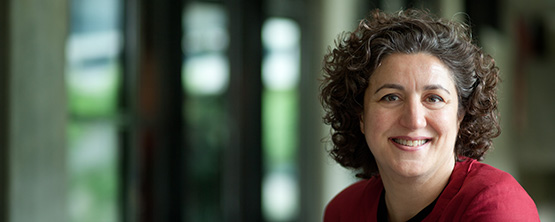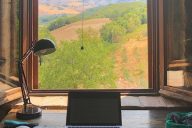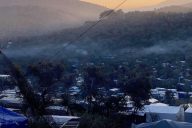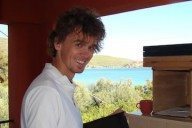I could not have done this without Artisa.
At the end of February, prof. dr. Halleh Ghorashi was awarded the prestigious Vici grant * for her innovative research into the social inclusion of refugees, one of the most urgent challenges of recent years. Her dream to be a committed scientist, who connects theoretical, abstract knowledge with concrete social themes, is deepened and spread internationally.
Halleh Ghorashi, engaged scientist
Halleh Ghorashi is Professor in Diversity and Integration at the Sociology department at the VU University Amsterdam, the Netherlands. She was born in Iran and came to the Netherlands in 1988. In 1994, she completed her MA degree in Anthropology at the VU University Amsterdam. She received her Ph.D. in 2001 from the University of Nijmegen. Between 2005 and 2012 she held the prestigious position of PaVEM-chair in Management of Diversity and Integration in the Department of Organization Science at the VU.
Ghorashi’s research focuses on issues such as diasporic positioning, refugee’s narratives, cultural diversity, emancipation and inclusion with the particular focus on power dynamics in society and organizations. She combines expertise in narrative approach, ethnographic research and experimental engaged methodology in her research.
The question that Ghorashi has long been engaged in is: How can (and does) the social sciences contribute to achieving the democratic ideals of equality and inclusion?
For the past twenty years, Halleh Ghorashi has been researching the refugee issue from different perspectives. “I have collected life stories from refugees, I have looked at the inclusion of refugees and migrants in organizations, and I have looked at social discussions about refugees and migration in relation to care, inclusion, integration.” A unique combination, because they combine science and practice. An engaged form of science, an ambition, she has carried with her all her life.
Refugee Academy
Another example in which she translates theoretical questions into social action is the foundation of the Refugee Academy. The academy provides a framework in which existing academic, professional and local knowledge are linked together to combine research and practice on refugee issues. There are shared stories and people become more aware of what they are doing, they learn from each other and they listen to each other. Worlds, which are often relatively far apart, come together at the Refugee Academy.
Vici-grant
With the research grant, Halleh Ghorashi wants to make a bigger impact.
“The infrastructure is there, how can we use this for real change within organizations and policies for the inclusion of refugees?
We are going to set up something similar in South Africa and the United States. What are the opportunities and obstacles in different national and academic contexts? These research questions are at the heart of this qualitative comparative study in South Africa, the US and the Netherlands.
I find such an international comparison very exciting. You often think within your own system but if you compare it with other countries there may be an opening that creates more imagination. ”
Personally, Halleh Ghorashi is very happy with this scholarship and the recognition, a scientific recognition, for years of hard work, for an engaged science and her belief that this line of research is important. Ghorashi did not want to choose between scientific ambition and social involvement. She experiences the grant as a reward for her committed scientific work.
Artisa
She wrote the first concept at Artisa. “I could not have done this without Artisa,” she says. “As researchers and scientists, we are always looking for new developments, but in our daily practice we have very limited time to reflect and think. I am so busy with teaching, supervising my PhD students, publishing articles and managing a large research group that I never expected to write a research proposal of this size. And then Artisa came on my path. Staying there for a week and letting my thoughts run free, reflecting on what was really innovative about my research of the last decades? How could I connect this to the urgent social issues of our time? I chose to devote my stay at Artisa entirely to writing my proposal, in which I had already collected the background material. It is amazing how being at Artisa (at sea with inspiring people and surrounded by great care) helped me. An improvement in qualitative time and that in an era of constant pressure. After a week the first set-up was finished and I still had several months to refine and finish it at home. I would never have come that far without Artisa, I’m sure of that and I’ll tell everyone who wants to hear it. ”
* The Vici grant is awarded by NWO (Netherlands Organization for Scientific Research).
It is one of the largest grants for individuals in the Netherlands and targets advanced researchers. The funding enables the scientists to set up their own innovative line of research and put together their own research group. The amount of money involved is € 1,5 million.












